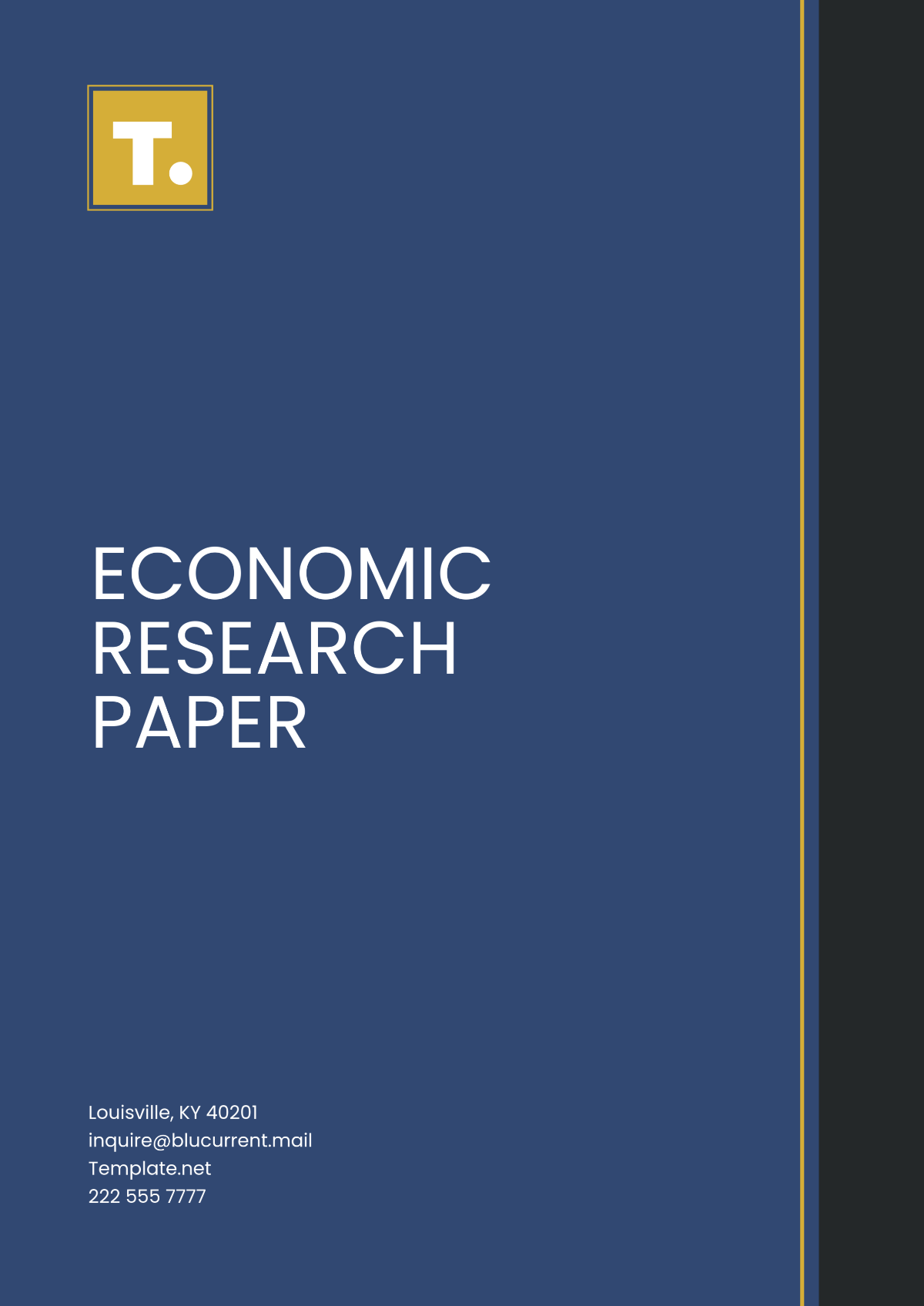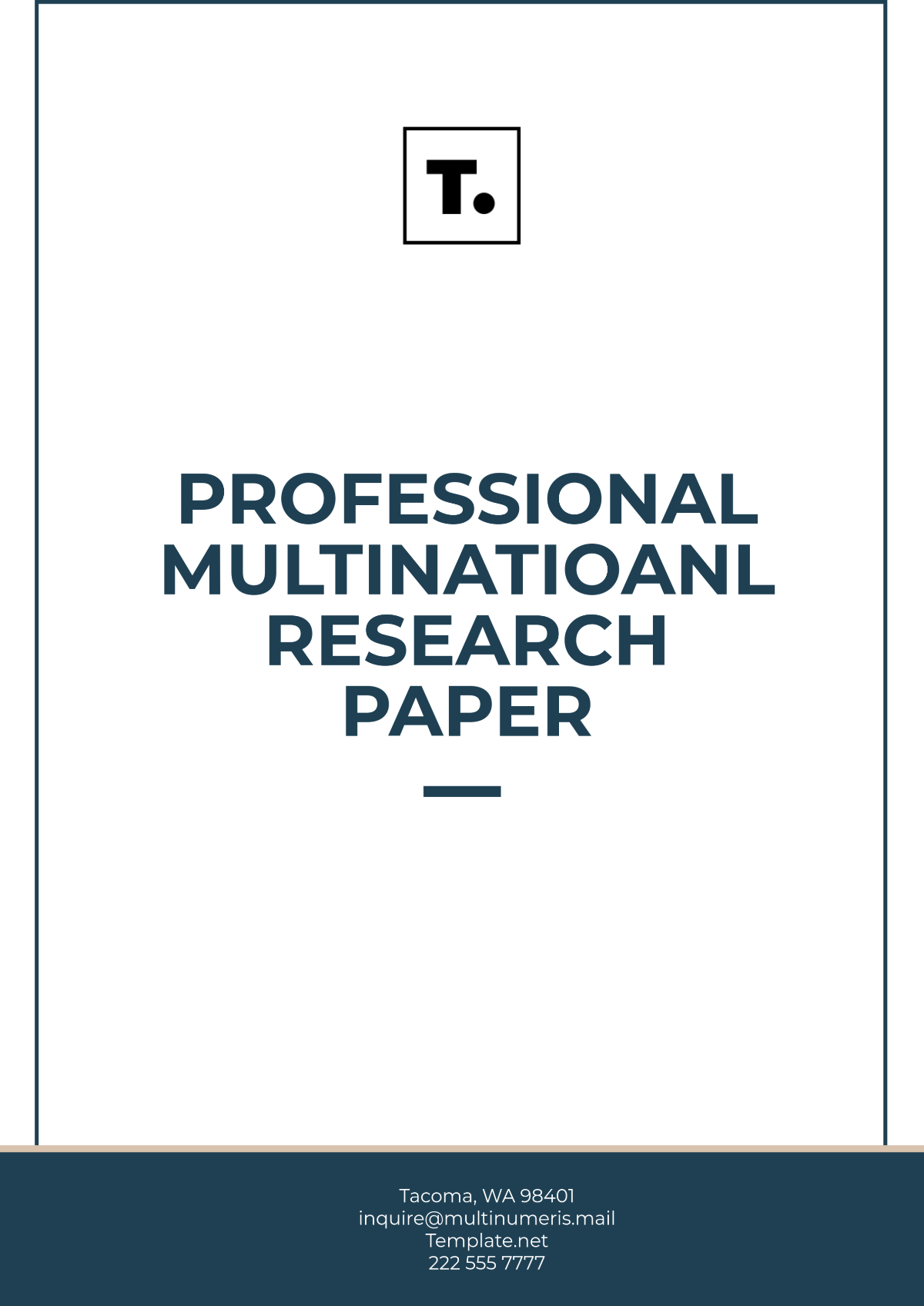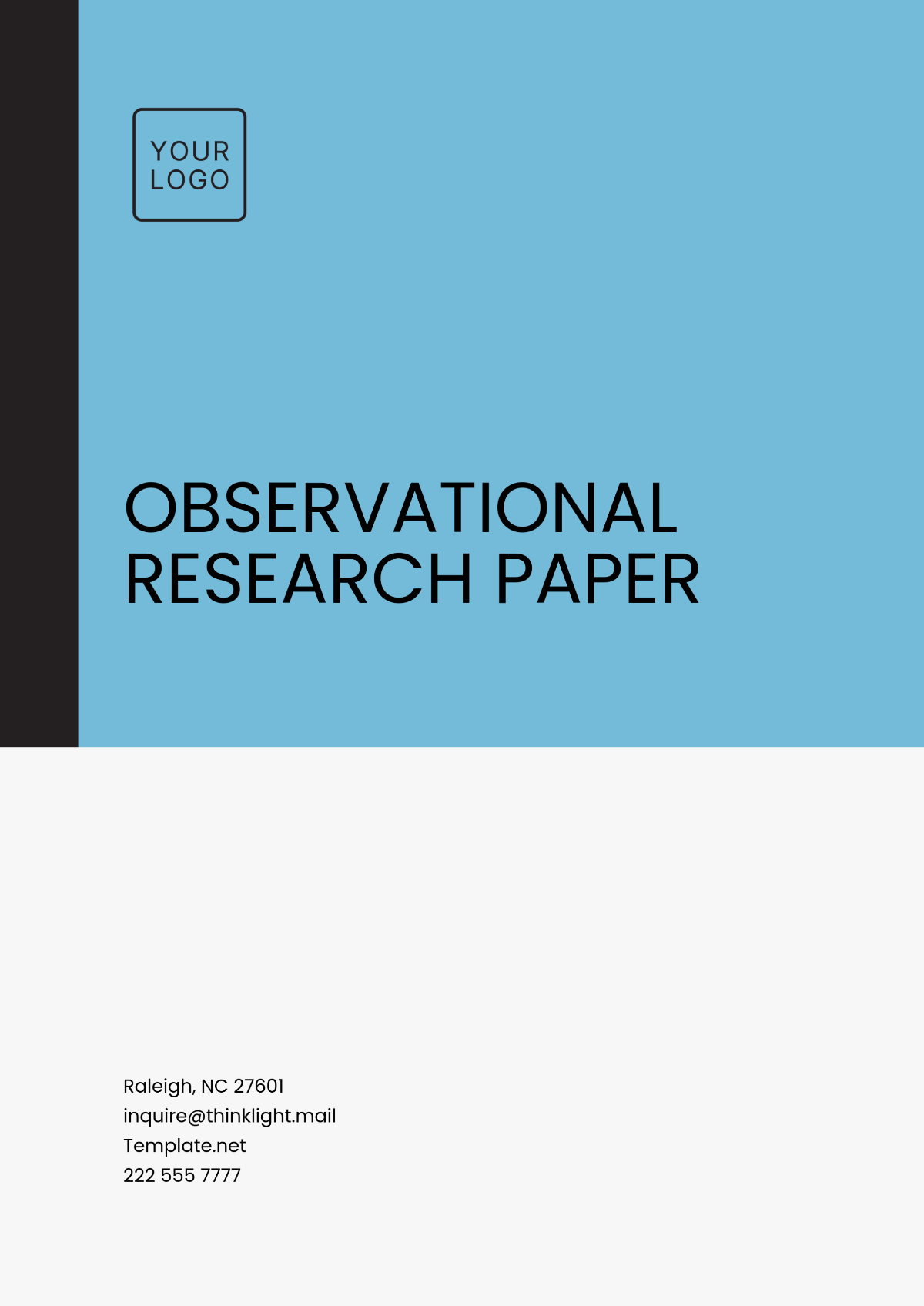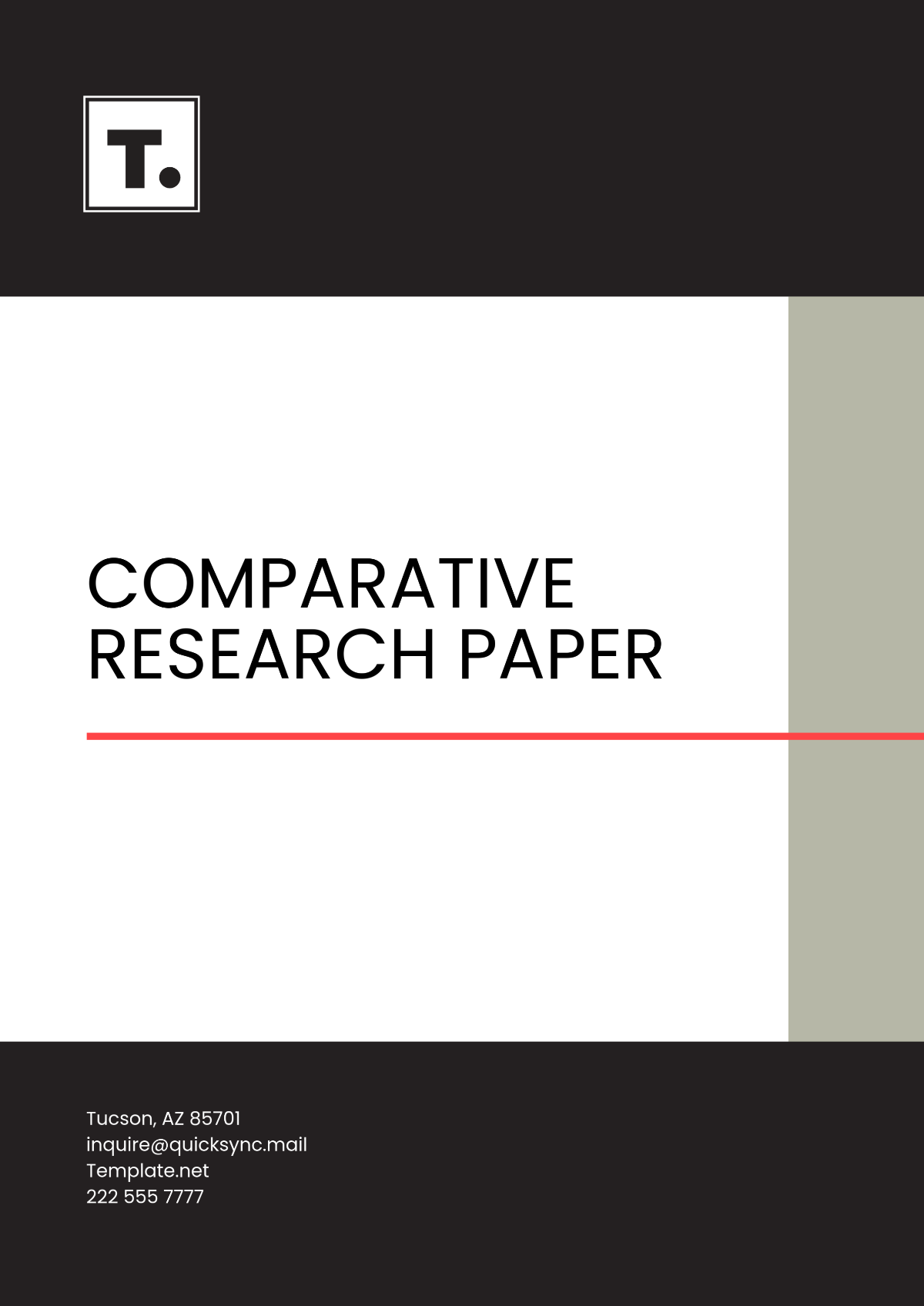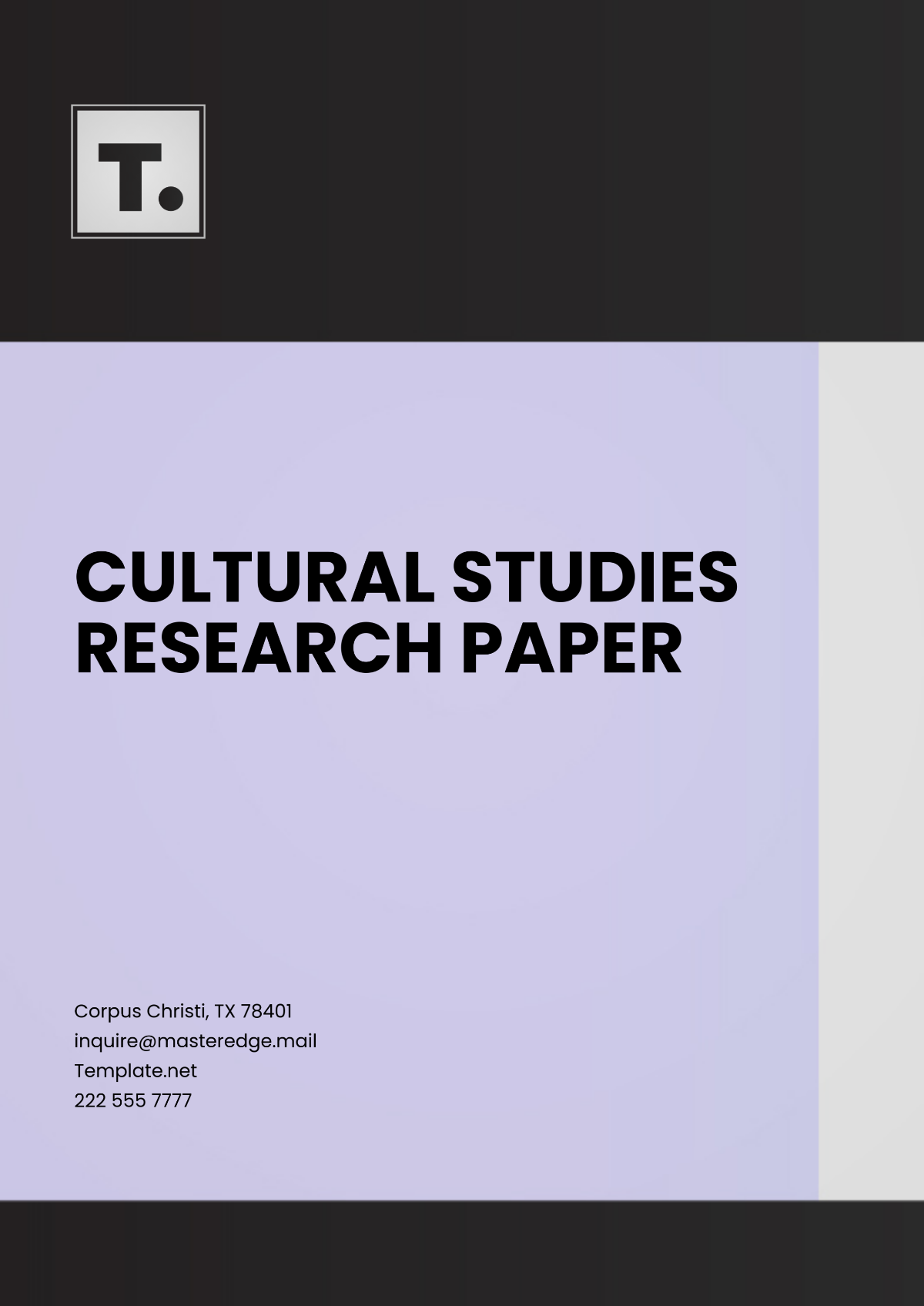Free Scientist Research Project Template
Scientist Research Project
Conducted by: [YOUR NAME]
I. Introduction
Climate change is one of the most pressing challenges facing our planet in the 21st century. Its effects extend beyond just environmental concerns, impacting various aspects of ecosystems, including biodiversity. This research project aims to investigate the relationship between climate change and biodiversity loss, focusing on [INSTITUTE NAME]'s efforts to contribute to the understanding of this complex phenomenon.
II. Literature Review
1. Climate Change and Biodiversity
Climate change alters temperature patterns, precipitation levels, and weather extremes, which directly affect the distribution, abundance, and behavior of species. Studies have shown that rising temperatures can lead to shifts in species' ranges, changes in phenology, and disruptions in ecological interactions, ultimately contributing to biodiversity loss.
2. Ecosystem Resilience and Adaptation
While some species may be able to adapt to changing environmental conditions, others may face an increased risk of extinction. Ecosystem resilience plays a crucial role in determining the ability of species to withstand and recover from climate-related disturbances. Understanding the factors that contribute to ecosystem resilience is essential for developing effective conservation strategies.
III. Methodology
1. Data Collection
Utilize data from [INSTITUTE NAME]'s extensive monitoring programs to assess changes in species distributions, population sizes, and community composition over time.
Incorporate satellite imagery and remote sensing data to analyze changes in habitat extent and quality across different regions.
2. Statistical Analysis
Apply statistical models to identify trends and patterns in species responses to climate change, considering factors such as temperature, precipitation, land use, and habitat fragmentation.
Conduct spatial analyses to assess the vulnerability of species and ecosystems to future climate scenarios.
IV. Results
The results of our analysis reveal significant impacts of climate change on biodiversity:
Species | Distribution | Population Size | Habitat Quality |
|---|---|---|---|
A | Decreasing | Declining | Degraded |
B | Shifting | Stable | Fragmented |
C | Extinct | N/A | Destroyed |
D | Expanding | Increasing | Intact |
E | Stable | Declining | Degraded |
V. Discussion
Our findings underscore the urgent need for proactive conservation measures to mitigate the impacts of climate change on biodiversity. Strategies such as habitat restoration, protected area expansion, and climate-smart land management can help enhance ecosystem resilience and facilitate species adaptation. Collaboration among scientists, policymakers, and stakeholders is essential for implementing effective solutions to address this global challenge.
VI. Conclusion
In conclusion, this research project provides valuable insights into the complex interactions between climate change and biodiversity loss. By combining scientific expertise with innovative methodologies, [INSTITUTE NAME] is contributing to the global effort to safeguard Earth's natural heritage for future generations.
VII. References
Smith, J. et al. (2052). "Impacts of Climate Change on Biodiversity: A Global Assessment." Nature Climate Change, 10(5), 380-392.
Jones, A. et al. (2053). "Ecosystem Resilience in the Face of Climate Change: Challenges and Opportunities." Science Advances, 8(3), eabc1234.
[YOUR NAME], [INSTITUTE NAME]. (2051). "Monitoring Biodiversity Trends in Response to Climate Change: Insights from [INSTITUTE NAME]'s Long-term Datasets." Journal of Environmental Science, 25(2), 150-165.
Brown, L. et al. (2054). "Conservation Strategies for Climate-Adaptive Management of Biodiversity." Conservation Biology, 28(6), 1439-1450.
IPCC. (2050). Climate Change 2050: Impacts, Adaptation, and Vulnerability. Intergovernmental Panel on Climate Change, Geneva.




















